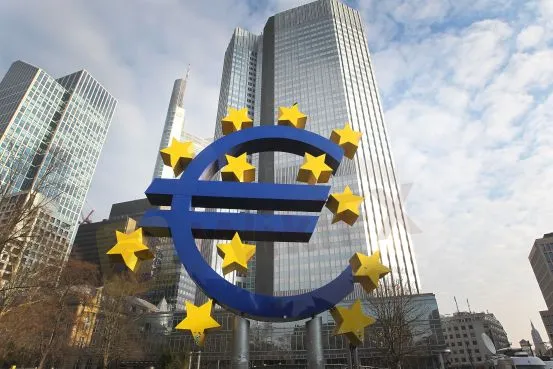简体中文
繁體中文
English
Pусский
日本語
ภาษาไทย
Tiếng Việt
Bahasa Indonesia
Español
हिन्दी
Filippiiniläinen
Français
Deutsch
Português
Türkçe
한국어
العربية
ECB rate rises will be more gradual than Fed's, says Draghi
Abstract:For this reason, while interest hikes are "inevitable" in the 19-nation currency bloc "the pace of adjustment is bound to be more gradual".

The European Central Bank will inevitably raise interest rates more slowly than the U.S. Federal Reserve given the different economic circumstance in the euro zone, Italian Prime Minister Mario Draghi said on Thursday.
Speaking to reporters during a visit to Kyiv, Draghi, a former ECB president, said the U.S. had full employment and inflation excluding energy and raw material prices was much higher than in the euro zone.
For this reason, while interest hikes are “inevitable” in the 19-nation currency bloc “the pace of adjustment is bound to be more gradual”.
For more Forex news, please download WikiFX- the Global Forex Regulatory Inquiry APP.
Disclaimer:
The views in this article only represent the author's personal views, and do not constitute investment advice on this platform. This platform does not guarantee the accuracy, completeness and timeliness of the information in the article, and will not be liable for any loss caused by the use of or reliance on the information in the article.
Read more

FED meeting minutes strongly hint at a rate cut in September; US dollar index falls to new low this year!
The U.S. Bureau of Labor Statistics revised down the employment growth in the year ending in March by 818,000, an average monthly decrease of about 68,000, the largest downward revision since 2009. The substantial downward revision of employment data re-emphasized the severity and necessity of the U.S. employment problem, paving the way for a rate hike in September. Bearish for the U.S. dollar.

What new signals does the Federal Reserve have? FED Governor Michelle Bowman reiterates the risk of inflation!
Fed Governor Bowman: There are upside risks to inflation, the labor market continues to strengthen, and a cautious attitude will be maintained at the September meeting. Boston Fed President Collins: If the data is as expected, it would be appropriate to start easing policy "soon". Inflationary pressure will slow down the pace of U.S. interest rate cuts, which will be bullish for the dollar.

Europe Analysis: EUR/USD, GBP/USD, EUR/GBP
The ECB's consumer expectations survey shows mixed economic signals with slight improvements in unemployment expectations but unchanged growth forecasts. The euro faces pressure from a strong USD, while the GBP shows resilience, contributing to the strength of GBP/USD and the decline of EUR/GBP.

GEMFOREX - weekly analysis
The week ahead: Traders on the backfoot ahead of a quiet week
WikiFX Broker
Latest News
Two Californians Indicted for $22 Million Crypto and NFT Fraud
Macro Markets: Is It Worth Your Investment?
Trading is an Endless Journey
WikiFX Review: Is Ultima Markets Legit?
Colorado Duo Accused of $8M Investment Fraud Scheme
What Impact Does Japan’s Positive Output Gap Have on the Yen?
RM62k Lost Investment Scam After Joining XRP Community Malaysia on Telegram
Victims of Financial Fraud in France Suffer Annual Losses of at Least €500 Million
Malaysia Pioneers Zakat Payments with Cryptocurrencies
FCA's Warning to Brokers: Don't Ignore!
Currency Calculator


